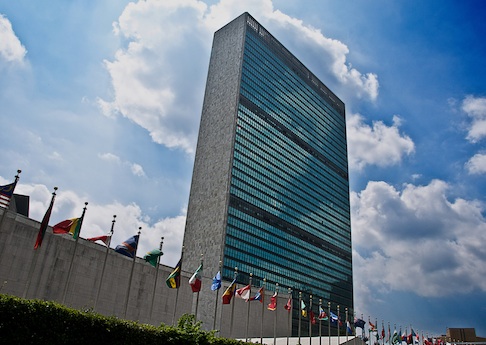The pay gap between professional United Nations employees and their United States government counterparts has widened considerably in the last decade, according to a recent report.
A report released at the end of last month by the Heritage Foundation noted that the average net salaries of U.N. professional and higher level staff were 19.6 percent higher than comparable employees working in the U.S. civil service. U.N. resolutions require the organization to maintain net salaries that are between 10 and 20 percent higher than U.S. equivalent civil servants to attract and retain top employees.
The U.N.-U.S. pay gulf has risen steadily since 2002, when it was just 9.3 percent, according to a May Government Accountability Office (GAO) report. The five-year average gap in salaries was also 15.7 percent, slightly higher than the target of 15 percent.
Brett Schaefer, senior research fellow at Heritage and author of the report, said escalating compensation costs are beginning to undermine the financial integrity of the U.N. and related organizations. Personnel costs now comprise about 70 percent of the U.N. regular budget and the budgets of affiliated groups.
"Because many major contributors are facing domestic fiscal constraints, they have been reluctant to support increased U.N. budgets," Schaefer said in the report. "As a result, increases in U.N. compensation are beginning to create budgetary strains, eliciting concern from some of these organizations."
Schaefer noted that the deepening disparity has partially resulted from a pay freeze for federal workers instituted in 2010 to combat deficits and debt.
The increases in U.N. pay also come during a limping economic recovery and period of significant financial strain for U.S. workers and families. Higher level U.N. officials in New York at the P-4 level, the most common professional grade, make an average of $138,368, compared to $104,904 for comparable federal workers in Washington, D.C. The average annual salary for all private sector workers was $45,155 in 2009.
U.N. compensation levels are determined by equating them to U.S. civil servants and then adding cost-of-living adjustments. Yet while the U.N. uses a cost-of-living ratio of 11.6 percent to adjust for differences between New York and Washington, D.C., the federal government’s ratio is just 3.6 percent, the Heritage report said. The GAO report also said the U.N.’s method for calculating pay "lack[ed] clarity."
Officials with the U.S. mission to the U.N. have said a failure to rein in personnel costs will lead to "draconian" staff reductions in the future.
"Despite our appreciation for U.N. staff, we simply cannot justify historically high and soaring U.N. compensation levels that are now significantly out of step with the average U.S. civil servant’s salary—the official comparator—even before generous and unique U.N. benefits are considered," said Joseph Torsella, U.S. representative for U.N. management and reform, at a General Assembly meeting in October.
Although most of the benefits for U.N. employees mirror the allowances for U.S. civil servants working overseas, just 2 percent of federal workers serve abroad. The U.N. offers rental subsidies, children’s allowances, and education grants up to $32,255 for the children of employees working in the U.S., according to the GAO report.
The U.N.’s International Civil Service Commission (ICSC) is currently conducting a review of the compensation for professional staff. The U.S. mission to the U.N. did not immediately return requests for comment.
Schaefer recommended restricting U.N. benefits for employees who stay in one location for longer than five years, mandating that the U.N. set net average salaries equal to U.S. workers rather than 10 or 20 percent higher, and using the federal government’s lower cost-of-living adjustments.
The U.N. has also been criticized for electing serial human rights violators like China, Cuba, and Russia to its Human Rights Council.
